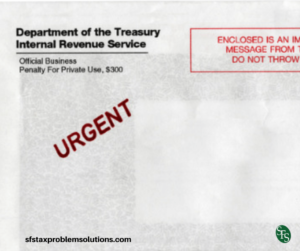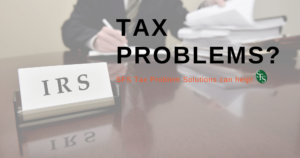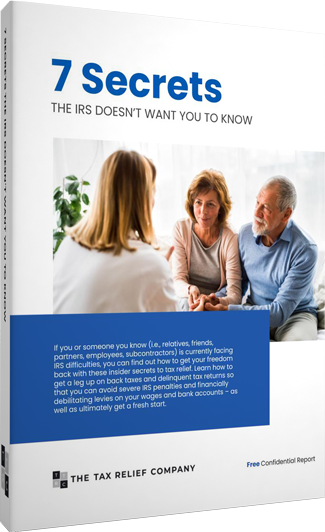IRS Appeals
An unexpected envelope from the Internal Revenue Service is never a good thing.
It’s never pleasant, but any letter that you receive should not be ignored, especially if you disagree with an IRS decision.
In fact, the IRS Taxpayer Bill of Rights covers this specific situation as one of a taxpayer’s rights:
- Pay no more than the correct amount of tax,
- Challenge the IRS’ position and be heard and
- Appeal an IRS decision in an independent forum
Here are some tips on getting through an IRS disagreement:
- Get professional help: First, if you don’t have a tax professional, get one.
Even if your disputed tax situation is not that complicated, dealing with the IRS can be difficult. A tax professional that has standing with the IRS, like an Enrolled Agent (EA), CPA, or attorney with experience in resolving issues between the IRS and taxpayers can save you time, and money. A Certified Tax Resolution Specialist (CTRS) is specially trained to argue your case before the IRS.
- Know the general appeals process: Your tax pro will help you understand what to expect and what happens during your appeal process.
The Appeals Office is separate from and independent of the IRS office that took action against you. It’s also the only level of administrative appeal within the IRS.
Conferences with an Appeals Office representative can be held informally by correspondence, telephone, or at a face-to-face meeting.
You don’t have to have official representation at an appeals conference, but as noted at the beginning of this post, it’s generally a good idea.
Preparation is essential: If you do go to the Appeals Office, be prepared to discuss all issues you don’t agree with at the conference.
You also might need to file a formal written protest or a small case request with the office named in the IRS letter you received.
And definitely be sure to file your protest within the time limit specified in the letter you received.
Specifically, Appeals isn’t interested in and won’t accept any objection you have based on moral, religious, political, constitutional, conscientious, or similar grounds.
- Let the pros handle it: Your tax adviser can file the written protest for you.
He or she also can take care of the discussions or hearings without you if you decide you just don’t want to go it alone.
If you do opt to skip the Appeal Office meeting and send only your lawyer, CPA or EA to make your case, be sure you have completed a power of attorney form allowing your representative to receive and inspect confidential information.
- Beyond Appeals: The IRS says that going through the Office of Appeals process generally settles most tax disputes without expensive and time-consuming court trials.
If, however, that’s not the case in your tax disagreement, you can take your protest to the judicial level. This includes appeals to the United States Tax Court, the United States Court of Federal Claims or your United States District Court.
In difficult times, many families have trouble meeting their commitments. If you’re worried about the IRS garnishing your wages, levying your bank account, or taking your home,
 then reaching out to our firm and getting a free, no-obligation, confidential consultation on your tax problem may give you some peace of mind. Jeffrey Schneider, EA, CTRS is a tax expert and can work with you to file your back taxes and get you tax compliant. He may even be able to abate the penalties. Now that is peace of mind! Contact us now.
then reaching out to our firm and getting a free, no-obligation, confidential consultation on your tax problem may give you some peace of mind. Jeffrey Schneider, EA, CTRS is a tax expert and can work with you to file your back taxes and get you tax compliant. He may even be able to abate the penalties. Now that is peace of mind! Contact us now.
Visit our website, sfstaxproblemsolutions.com to book your Free Debt Settlement Analysis at https://go.oncehub.com/jeffreyschneider.


